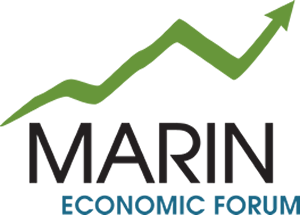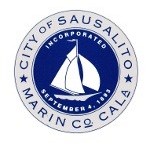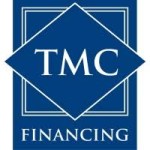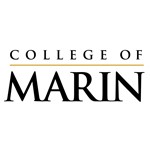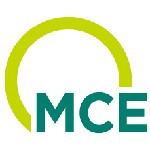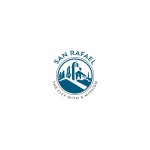Marinnovation event spotlights ‘the frontier of technology’
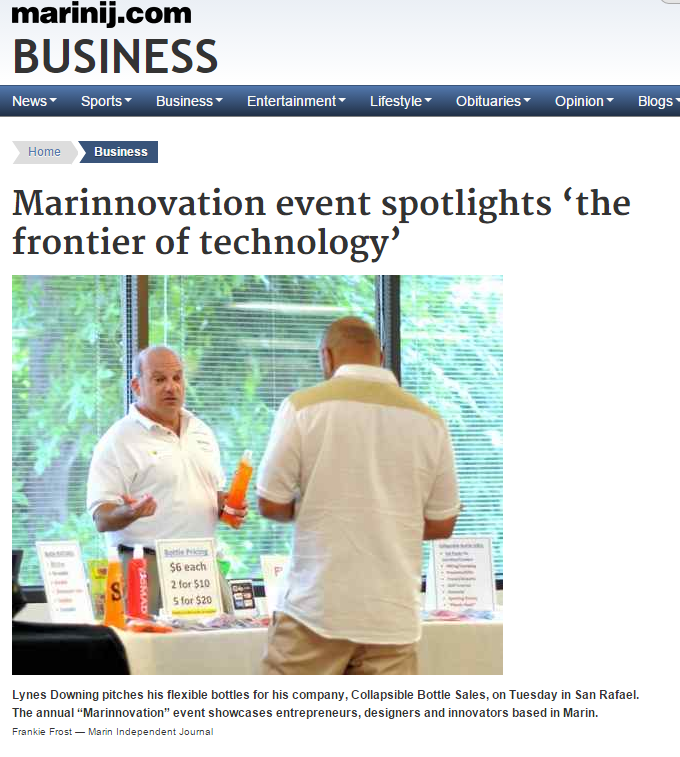
By Janis Mara
A man’s face appears dead center in a black-and-white video. Seeming to make eye contact with the viewer, he says, “The Center for Volunteer & Nonprofit Leadership shares my view of hope and the need for change in this world.”
This 40-second video of Peter Rodgers, the San Rafael nonprofit’s marketing director, appears on his LinkedIn profile. If he chooses, he can include it in his email signature or his resume. It was created by YouPlus.biz, a company helmed by two Fairfax residents whose offerings were demonstrated at the Marinnovation event in San Rafael Tuesday.
Thirty Marin-based innovative businesses strutted their stuff in booths and demonstrations, and representatives of Edutopia, the website of the George Lucas Educational Foundation, gave speeches at the event. Marinnovation highlights Marin technologies, ventures and services with the hope of fostering entrepreneurship.
The YouPlus.biz videos are only about two inches long by one inch tall on LinkedIn, but when the viewer clicks on them, they expand to nearly fill the screen. “The video showcases your talents. It gives a potential employer a picture of who you are,” said Michael Sexton, cofounder of YouPlus.biz.
About 350 people crowded the exhibit hall to take in the exhibits, nibble on strawberry, apple and cantaloupe kabobs and other delicacies, and above all, network, network, network.
“There are people in Marin who are on the frontier of technology, and we want to showcase them,” said Robert Eyler, chief economist of the Marin Economic Forum.
The nonprofit, created by a public-private partnership in 2010 designed to foster local economic growth, put on the event, along with organizations including The Venture Greenhouse of Dominican University.
The greenhouse itself is a good example of the kind of innovation the event seeks to foster. Launched in 2011, it’s what’s known in Silicon Valley as an incubator – providing an intensive acceleration process for growing companies that have the potential for significant environmental and social benefits.
Back in the exhibit hall, an object resembling a foot-long black throat lozenge adorned the booth of Sausalito-based Tarlow Design. “It’s a motorized tie rack,” said company founder Ken Tarlow, who was entertaining a steady stream of visitors to his booth.
“When I first saw it, I didn’t think it would succeed,” said Tarlow, whose company helps inventors launch their products.
“We ran a focus group and found out it was the perfect men’s gift. We created a prototype and licensed it to a manufacturer and it sold four million units,” Tarlow said. “She (the inventor) makes 75 cents a unit. She sits at home and collects the checks as they come in the mail.”
“My latest idea is a restaurant that serves gourmet dog food so peoples’ pets can enjoy themselves at restaurants too,” said Katheryn Horton, a visitor to Tarlow’s booth.
Horton, the school-to-career liaison with the Marin County Office of Education, said, “I’m here to shop around for businesses that would like to hire an intern.”
A few booths down, Jessica Thompson of Yogo, with a flick of the wrist unrolled one of her biodegradable, approximately 6-foot-long portable yoga mats “made of natural tree rubber,” said Thompson.
The Larkspur-based company, a crowd-funded startup, launched just last year and already got the “Gear of the Year” award from Yoga Journal, Thompson said.
The long room, with booths at the sides and center, was filled with a dull roar of conversation even during the speeches, which nonetheless drew a sizable crowd.
“Students need to learn the same kind of thinking as entrepreneurs,” Milton Chen, a senior fellow with Edutopia. “It’s important to understand that it’s OK to fail. As they say in Silicon Valley, ‘Fail early, fail often.’ That’s how you learn.”
Peter Poutiatine, senior school selection coordinator at Edutopia, took the microphone after Chen’s presentation.
“Work is not the opposite of play. Depression is the opposite of play,” Poutiatine said. “There’s a lot of learning that happens in play. You can see it on the playground, on the beach making sand castles. They are learning about materials, about ‘How do I keep the waves from washing it down?’
“Kids learn at the Exploratorium not because someone told them to do it, but because they are interested and engaged,” Poutiatine said.
